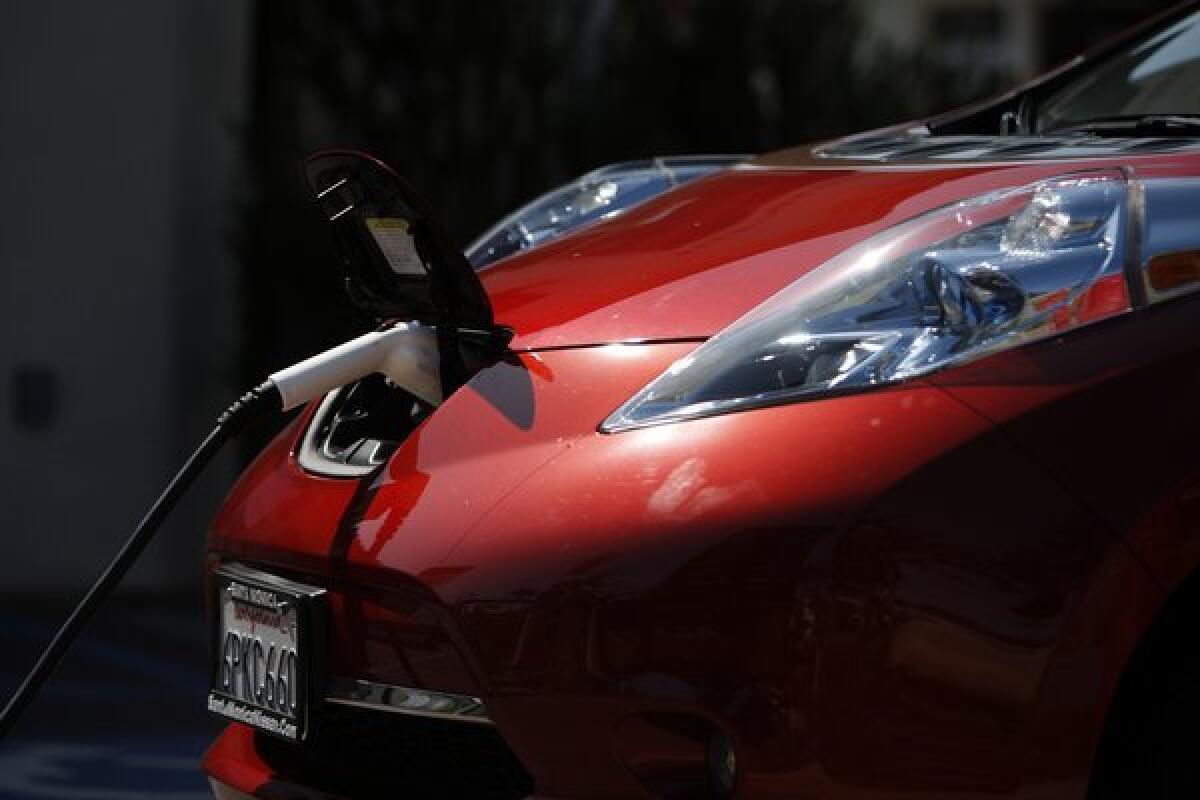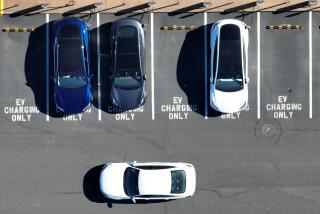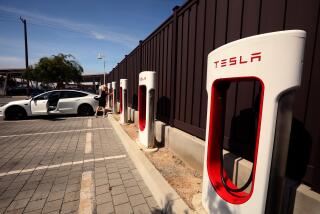JuiceBox, a DIY electric-car charger, gets boost from Kickstarter

- Share via
JuiceBox, a do-it-yourself kit to build an electric-car charger, may be well on its way to garages thanks to the crowd-funding site Kickstarter.
Electric Motor Werks, a company based in Palo Alto that specializes in electric-car conversions, launched its Kickstarter page in June for the home-charging station the company says could provide a faster charge for a range of top-selling electric cars.
Supporters could pledge $109 to get a base kit, which included most of the parts needed to turn a 120-volt outlet into a 240-volt station. These kits didn’t include the input cables drivers would need to buy from EMW’s site and insert on their own. The cables cost an additional $150 to $200.
The Kickstarter page cites an estimated one to two hours to assemble base edition kits, and three to four hours for the $199 premium kits, which include LCD interfaces.
For a $329 pledge, supporters could opt to have a fully assembled JuiceBox delivered to them in August, as long as they also purchased input and output cables from EMW before the boxes ship. All told, the JuiceBoxes would still undercut some of the other popular charging options on the market, which can range from $450 to $600.
There’s at least one problem with the do-it-yourself solution, though. None of the boxes, assembled or not, would be certified by Underwriters Laboratories, which means they wouldn’t pass inspection in some cities.
EMW founder Valery Miftakhov confirmed the first batch of boxes, targeted to the “early adopter segment” of EV owners, would not be certified. But, he added, “all of the components used are UL recognized and the enclosures are nonflammable, so our consultants tell us that we should be able to certify this exact design without any problems.”
The lack of certification won’t make the boxes unsafe, Miftakhov said, though he conceded the certification will be needed before the company sells the charging kits in “any serious volume.”
Tom Saxton, chief science officer for EV driver coalition Plug In America, said a specific pool of tech-savvy electric car owners might want a product like the JuiceBox. “A less sophisticated user might not realize they’re getting into something their insurance company might not be happy about,” he said.
As of Monday morning, 233 backers had thrown in $43,509 to fund the JuiceBox project. EMW originally started with a $25,000, goal but raised it to $40,000 to add WiFi access, which would allow drivers to monitor car charging remotely.
Saxton had some other concerns about the campaign, most notably the gap between advertised price and actual cost, the potential risk of purchasing shoddy cables and the perhaps overblown promise of a five- to 10-times faster charge.
But Saxton also said EMW’s innovative approach to inexpensive charging solutions was encouraging, part of a larger trend making electric car ownership a more feasible option for American drivers. “A charging station is basically an outlet with attitude. Over time, I think we’re going to continue to see these options get less expensive,” he said. “People are realizing how simple these things are, and that there’s no need for them to be so expensive.”
ALSO:
Fiat vs. Fiat: Electric 500e and 500 Turbo comparison test
Charging electric cars at home: Utility discounts compared
IndyCar’s Andretti team joins proposed electric-car race series






